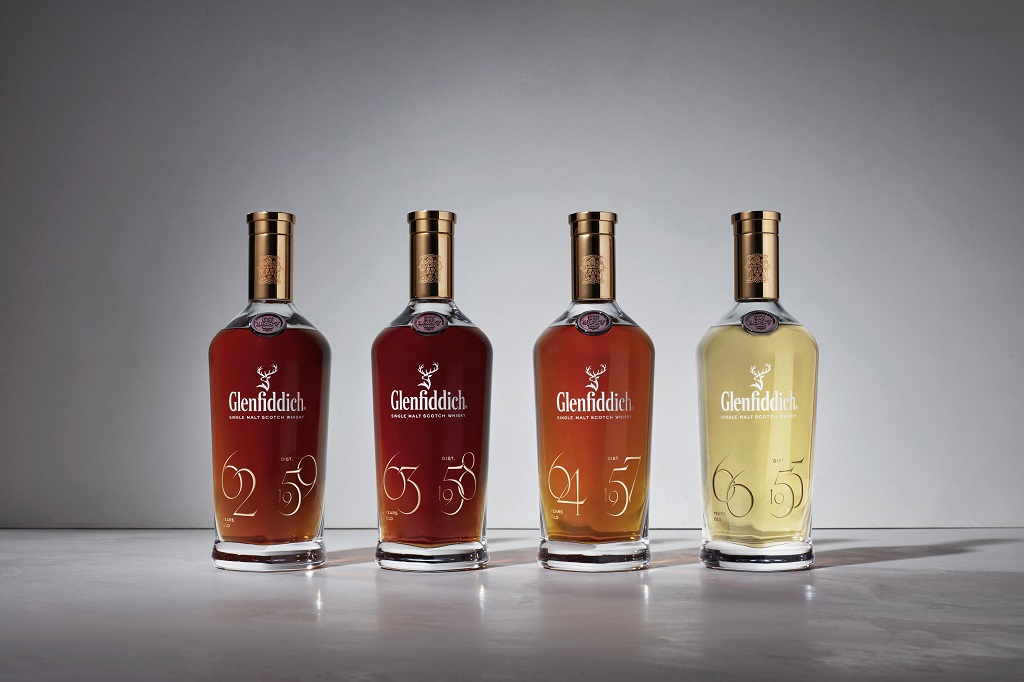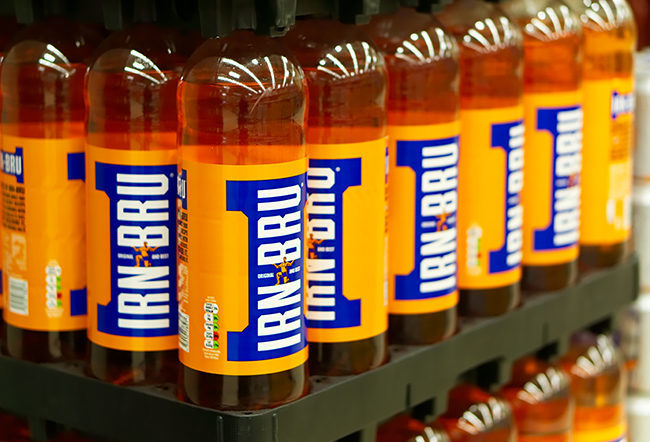Scotland’s food and drink industry is a multi-million pound industry, with a huge worth to the country’s economy in terms of finance and jobs.
So many Scottish brands are known throughout the world – our various whiskies, Irn-Bru and Tunnock’s, to name but a few.
And with a growing number of producers in the country, something that’s hugely imporant is protecting your name and brand, especially if you’re growing quickly.
Marks & Clerk is the largest firm of intellectual property advisers in the UK and is recognised as one of the world’s leading IP firms.
Campbell Newell, a partner from Marks & Clerk’s Edinburgh office, said: ‘I work for a range of Scottish food and drink clients, some very large, some very small.
‘When businesses are very young, they don’t always appreciate the importance or value of their brand name.
‘Quite often, I’ve had situations where a new business has started up – for example, let’s call one Granny Smith’s Shortbread – and all of a sudden they’ve had a lawyer’s letter come in, after a few months, to say they don’t own the trademark on that name.
‘That means they’ll have to deal with the legal costs and that could potentially be massive.
‘What we try to focus on is, if you are at an early stage in your business, you want to trademark your name and make sure it’s protected, as it’s your most valuable asset.
‘Think about whisky – when people go for a bottle, they go for its name. They want a bottle of Tomatin or Glenfiddich. That’s what distinguishes them, their brand name.

The Glenfiddich is a protected international trademark and design
‘Businesses spend a lot of time and money to promote their brand, going to events and so on, but they make sure they trademark their brand name.
‘Quite often, you see businesses bought and sold these days, and it’s not necessarily about what they’re making, but in their name. Some small firms have a good, long tradition, and that’s what others want. They can buy a name with history.
‘In food and drink, provenance is so important, and from an environmental point of view, many people want to keep local. Someone might try some marmalade and really enjoy it, and then want to buy it again – and will try to remember the name of the one they had.’
Ensuring that your name is protected throughout the UK is one thing, but when it comes to selling abroad, as many Scottish businesses do, that’s another matter entirely.
Campbell explains: ‘The other thing we are finding is, where you might have a food and drink business in Scotland which has been trading for two or three years, they might only just have had their first order for export.
‘Because the name is registered in the UK, they might not be able to use it in other territories. We you have a trademark in Europe, but it could already be in use in the USA. You would have to look at looking at it internationally.

Irn-Bru is known all over the world
‘There’s also the mystique of the brand. Think of a brand, and there’s always some story behind it – you have got to protect your investment, so you need to make sure it’s registered.
‘Another problem is the online world. It’s an ongoing battle to protect yourself there too.
‘If you’ve got Granny Smith’s Shortbread as your business, you make sure people know it’s the genuine Granny Smith’s Shortbread, not a fake or counterfeit product.
‘Whisky is helped because there’s now certification marks for Scotch whisky, to prove it has been made according to the defined terms, conditions and rules.

Campbell Newell is a partner from Marks & Clerk’s Edinburgh office
‘You also look at Harris Tweed, which is sold all over the world. That is very carefully defined by law.’
Marks & Clerk offers a full range of intellectual property services – covering patents, trade marks, designs and copyright – for clients ranging from SMEs and spinouts to universities and multinationals.
The firm’s patent attorneys all have scientific or engineering backgrounds whilst its trade mark attorneys advise on all areas of brand protection.
Campbell added: ‘The other area you need to think of when it comes to trademarks is your logo. For example, the Cù Bòcan, from Tomatin, it has registered its bottle shape and logo.
‘That’s putting in another degree of protection, with the logo, the packaging and the colours, so there’s actually layers of protection there on several levels.
‘We’ve seen a massive upsurge in brewing and distilling in Scotland in the last few years, so this is an area that’s particularly important to them. You could launch on a Monday, and by the Tuesday morning, you could have a lawyer’s letter.
‘There’s nothing to worry about if go through the process correctly to protect your brand.’
Marks & Clerk was co-founded in 1887 by Scots inventor Sir Dugald Clerk and renowned engineer George Croydon Marks.
TAGS

